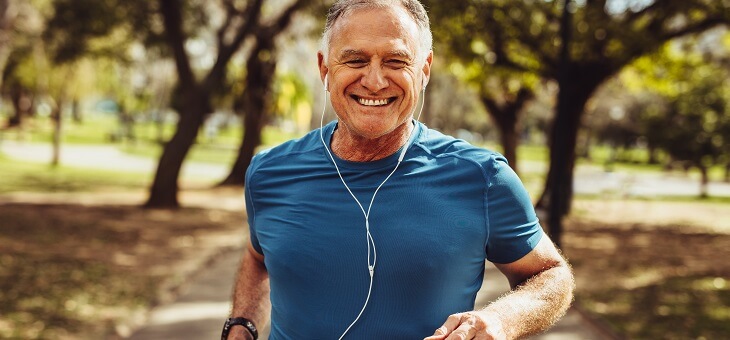For many Australians, the events of the past two-and-a-half years have disrupted life in myriad ways. The COVID pandemic has forced many out of their offices, closed down community and sporting clubs, and generally kept us from getting ‘out and about’.
This has affected different people in different ways, but one very common thread has been an effect on mental health – in most cases, not a positive one.
What, then, can we do about improving our mental health?
Good nutrition and a reasonable amount of sleep are good for a start. Over the past decade or two, our understanding of the link between gut health and mental health has increased dramatically. And the benefits of adequate sleep have long been known.
Read: Do you listen to your body when it comes to food and exercise?
We have also known about a strong link between exercise and mental health for some time. But whereas the changes forced by the pandemic haven’t really affected our ability to eat well (although there are those of us who availed ourselves of Uber Eats far too often who might argue otherwise!), the opportunity for exercise was very much restricted.
Gyms closed down, entire sporting seasons – cricket, football and others – were cancelled, and in some states, curfews made getting out to do some exercise highly problematic.
The pandemic is by no means over, but restrictions on movement have been lifted. Gyms and sporting clubs are operating with at least some level or normality, and if you feel like running for three hours straight, you can do so with impunity (if not immunity).
Read: New study shows exercise can reduce pneumonia risk
Exercise is by no means a ‘magic bullet’ cure for depression and other mental illnesses, but it can certainly form an important part of the solution. The science is very clear on what physical activity can do for us: it increases the size of the hippocampus, which relates to memory, and the insular cortex, which relates to emotional regulation.
These are key pillars of mental wellbeing.
Dr Jacinta Brinsley, an exercise physiologist at the University of South Australia, whose research focus is exercise and mental health, backs up that notion: “Physiologically, we’re designed to move. Aerobic exercise increases blood flow to your brain, it helps regulate your insulin sensitivity, your blood glucose, it promotes your immune function. It makes the systems in your body work at their optimal level to maintain homeostasis.”
Exercise also releases serotonin, a mood-stabilising chemical, into your system, as well as priming your motivation circuits via dopamine. These are generally depleted in people who suffer from depression.
Read: Podcast – healthy ageing through diet and exercise
The benefits of even a small amount of exercise can be immense. Studies show that relatively small doses of physical activity are associated with substantially lower risks of depression.
For adults under 65, the Australian Department of Health recommends 2.5 to five hours of moderate intensity physical activity (e.g. a brisk walk, golf, mowing the lawn or swimming) per week and 1.25 to 2.5 hours of vigorous intensity physical activity (jogging, aerobics, fast cycling, soccer, netball, etc).
If you’re in the 65-plus age bracket, the recommendation is at least 30 minutes of moderate intensity physical activity on most, preferably all, days.
If you haven’t been physically active for some time, you may need to start slowly and build up your exercise levels over time, but any exercise you do is more than likely to bring you benefits, both physical and mental.
If you enjoy our content, don’t keep it to yourself. Share our free eNews with your friends and encourage them to sign up.

